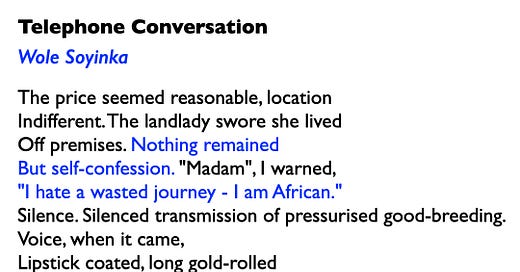I recently moved homes. Many young people move to cities, away from their families for work or to study. It is a well known fact that finding the right house to thrive and create, with an affordable budget (among a variety of other considerations including locality, proximity to work/friends/cultural ‘hotspots) and a landlord who is considerate and open minded is a struggle in most places around the country. I can speak about Delhi and Bombay from personal experience. My own interactions have been quite comfortable considering the privileges my social location, gender and identity afford me.
But I have heard horror stories. Friends have told me about Jain landlords deciding to rent out homes on the basis of food - no non vegetarians, people being ousted from homes, flat out rejected homes because they were Muslim or told by brokers to hide their identities. The last time I moved houses, for instance, quite a few times, I encountered landlords’ covert (and a couple of times direct) ‘request’ to brokers not to bring “Mohammedans”, Afghanis and Kashmiris. In fact, the house that I moved into finally (my previous apartment) was initially to be rented by a Kashmiri couple. I caught the broker trying to convince the landlord on the phone not to give it to them. I spoke to the landlord and told him we were not interested (I was sharing with a friend), but got a call back from him later, as it turned out that the couple found the house too big and had backed out. I went to meet him to confirm this. He was Sikh and had just come back from the Gurudwara. He put his hand on his heart and gave me his word that he did not refuse them because of their religion/community and would have been happy to have them. He even played a phone recording to me where the tenant said he had found something smaller and more suited to their needs. This did endear me to the landlord, and I never ended up contacting that broker again.
The power that landlords hold over tenants in most cities is just another extension of caste and class privilege. Young people already struggling with the pressures of living away from home, in unfamiliar cities with incomes, that in the initial years are hardly enough to keep them going, should not have to face this added burden. This is the Indian context, of course.
The poem I share with you today is quite a well known one penned by the Nigerian writer and activist Wole Soyinka. I read this many years ago, but was recently reminded of it as I went through the motions of finding a new apartment.
‘Telephone Conversation’ is a biting, satirical comment on racism as reflected in an exchange between a landlady and a potential tenant. With his ‘clinical’ narration of this episode, Soyinka manages to situate the reader with the persona of the poem, we feel as if we are standing right next to him, feeling his shame, surprise and even empathising with his ability to find humour in the absurdity of the situation. By the end of the poem, the persona’s frustration and anger turns into an insightful critique of this xenophobia, while revealing the glaring fissures in this moral and ideological stance.
This poem was written in 1963 - he was awarded the Nobel prize for Literature in 1986. Alas, what he is talking about still exists today, perhaps in even more lethal forms, almost sixty years since this poem was written. Evolution, my friends.
If you are reading this not in your inbox, Subscribe to Poetly to explore poetry together from the comfort of your email, with commentaries that endeavour to open windows and reveal hidden passageways in the mansions of metaphor and language that poets create as they speak truth.




